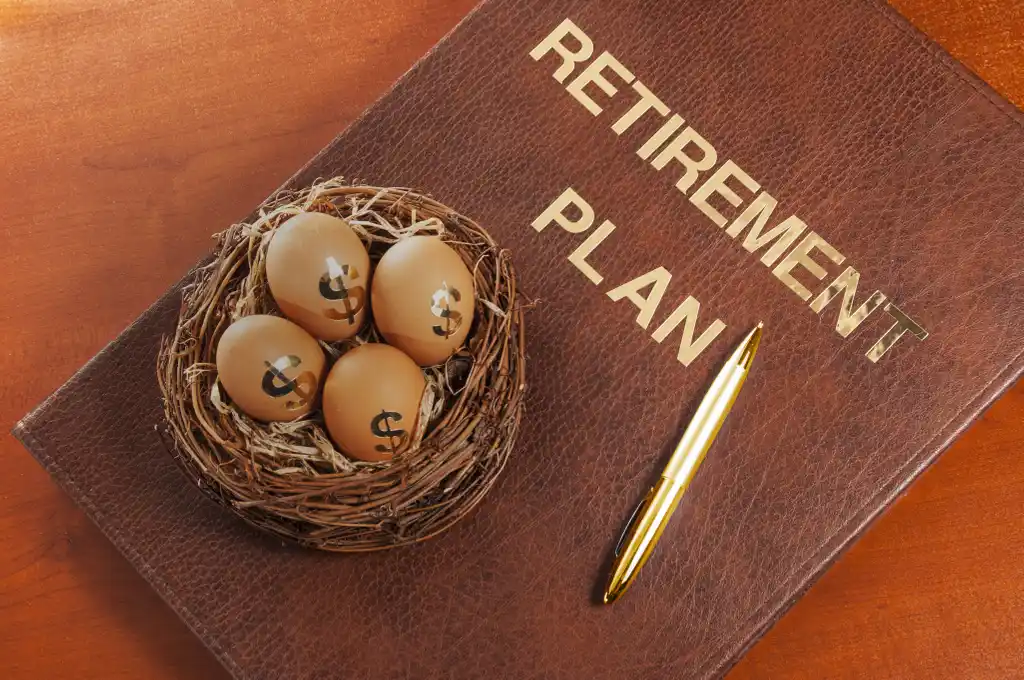Retirement can be an exciting time in life. After working diligently for years and through careful planning, you are now finally able leave the proverbial rat race. You can finally have time all to yourself. You’ve earned it! A secure retirement can provide much needed peace of mind. However, before taking this big life step, it’s important to get your financial house in order. That takes time and effort. depending on how careful you’ve been. Here are ten financial steps that everyone should take before retirement.
Calculate Assets And Liabilities
Calculating your assets and liabilities will tell you where you stand financially ahead of retirement. Another way to look at this exercise is to calculate your “net worth.” Add up all your assets, such as savings, investments, home value, etc. Then subtract your liabilities from the total. Those are debts you owe such as credit cards, mortgages, lines of credit, car loans, and so forth. This calculation will tell you whether you’re truly ready financially to retire. Obviously, if your liabilities outstrip your assets, then you may want to reconsider retirement. Hopefully, your assets will prove to be bountiful and you’ll find that you’re in better financial shape then you thought. Either way, having a clear picture of all your assets and liabilities is critical before considering retirement.
Pay Off Your Mortgage
Many financial experts suggest it’s important to be mortgage free before retirement. The main reason is that mortgages tend to be your biggest monthly payment. The median monthly mortgage payment for American homeowners was $1,030.00, according to the U.S. Census Bureau’s 2015 American Housing Survey. That’s a good chunk of change. Once your income is reduced in retirement, it will help enormously if you no longer have a sizable mortgage payment every month.
Studies show that people who carry a mortgage into retirement feel much more constrained financially then those who have their home paid off when they leave the workforce. The money not spent on a mortgage can go towards other expenses, either bills or leisure. You’ll still have utility and grocery bills, for example. Or maybe you’d like to use that money to travel in your newly acquired free time.
Eliminate Non-Mortgage Debt
Non-mortgage debt is the bad kind. At least your real estate appreciated in value. This other debt accumulates on credit cards, lines of credit, and car loans, among other things. This is bad debt because it tends to have higher interest rates and leaves you nothing of value once the debt is paid off. Mortgages carry lower interest rates and a house is an asset that appreciates in value. You’ll own the house outright once it’s paid in full.
Paying off high interest, non-mortgage debt before retiring should be one of your top priorities. The savings from not paying more interest fees on credit cards and lines of credit can add-up. It will be beneficial to you now that your income is about to be more limited. You’ll want to avoid situations where the non-mortgage debt continues to grow as interest is applied to it each month. Do yourself a huge favor and pay off this damaging debt before you retire.
Review Your Investments
Reviewing your investments and making any needed adjustments is good advice at any stage of life. However, it’s especially important to do before retiring. When you are working, it’s important that your investments be largely in equities (stocks) that can grow in value aggressively. However, as you enter retirement, you’ll want to put your investments in a more defensive position. You’ll start favoring wealth preservation over wealth accumulation.
This is best accomplished by moving your investments into more stable vehicles such as bonds or gold, and out of equities that tend to be more volatile. Not all of your investments need to switch. Just a shifting percentage. This re-balancing of your investment portfolio should be done ahead of your planned retirement date.
The worst thing would be for your investments to get caught in a market downturn right before you stop working. Such a situation could wipe out a good portion of your hard-earned savings. Once retired, it is important for you to be careful and strategic with your investments. Making your money last as long as possible should be the goal.
Apply For Government Benefits
There’s a lot to consider when it comes to government retirement benefits available, such as Social Security and Medicare. For example, you can elect to take Social Security benefits as early as age 62 (potentially earlier if you are a survivor of another Social Security claimant or on disability). Or you can wait until as late as age 70 to start receiving benefits. If you choose to start receiving Social Security before age 70, the benefit is reduced by five-ninths of 1% for each month ahead of your 70th birthday.
Similarly, every American is eligible for Medicare coverage at age 65. This can make health insurance much more affordable for you in your golden years. Equally important, Medicare coverage after age 65 cannot be denied due to preexisting medical conditions. You will need to decide when to apply for these government benefits and how best to take advantage of them. That will require you to calculate your financial needs and the status of your overall health, as well as that of your spouse. Government benefits can be extremely helpful and most people will need them in retirement.
Plan For Taxes
Taxes are no joke, even in retirement. How much you pay in taxes will ultimately determine how comfortable you are in your advancing years. As a general rule, you’ll want to minimize the taxes you pay. Keep in mind that you can be taxed on everything from the money you withdraw from a 401K account to dividends earned on investments and money provided by Social Security.
Depending on your retirement savings and earnings, you will still be placed into a tax bracket as a senior. The lower the bracket, the less taxes you’ll owe. Given the complicated nature of taxes and the significant impact they can have on your retirement income, the best advice is to consult with an accountant or professional tax preparer. They can assess your financial situation and offer solutions to lessen your tax burden in retirement.
Calculate Your Insurance Needs
Your insurance needs change as you get older. For example, the amount of life insurance you need will likely diminish once your children become adults and are financially independent. Similarly, once your children leave home you likely won’t need to have life insurance policies on them any longer. Once retired, you may go from owning two cars to only owning one. This will require your automotive insurance policy to be adjusted.
Figuring out your insurance needs and making appropriate changes will help ensure that you are not paying too much for insurance once retired. It’s easy to let unneeded policies eat into your savings. Look at your lifestyle in retirement and figure out what insurance you truly need and what you can do without. Be sure to update and adjust your life insurance policy as needed before retiring. Life insurance premiums tend to rise as you advance in age.
Update Your Estate Plan
Life insurance segues nicely into the next crucial step: updating your estate plan. Estate planning is, without a doubt, one of the most important things for everyone to do prior to entering retirement. Estate planning involves everything from wills and powers of attorney, to arranging for long-term care (if needed) and funeral preparations. You’ll also want to arrange for how your money is to be managed should you become incapacitated.
Most estate plans involve multiple legal documents and you will almost certainly need to rely on an attorney to get your affairs in order. While not inexpensive, the legal fees associated with estate planning tend to be a one-time cost. Paying this fee and ensuring that your estate plan is up-to-date and iron clad will provide you with added peace of mind. It will also take a great deal of stress (both financial and emotional) off your children or heirs, should you pass away unexpectedly.
Secure Health Coverage
The aforementioned Medicare can be helpful in retirement. However, it likely won’t cover all your healthcare needs. Items not covered by Medicare include dental care, most prescription drugs, hearing aids, vision care, and long-term care facilities. These can all be pricey for retirees. Plus they usually become more needed as you get older.
If you’re lucky, you may have private healthcare insurance available to you in retirement from a longtime employer. If not, you’ll likely need to shop around yourself and purchase your own healthcare coverage. When doing so, be sure to look for discounts that might apply to you. There are often price breaks for military veterans, former first responders, civil servants, and senior citizens.
Prepare A Budget
None of the steps on this list will be much help if you don’t prepare a budget. Once your income is reduced and largely fixed in retirement, it will be more important than ever to know what money is coming in and what money is going out. You’ll want to know in advance exactly how much monthly income you have, and which bills need to be paid.
Drawing up a budget (and sticking to it) will also help to ensure that you don’t go into debt in retirement. Or that you don’t exhaust your savings and investments too early. As already mentioned, careful preparation and planning is key to a financially sound retirement. A monthly (or even annual) budget is the best way to stay on track. Be sure to account for all your expenses in retirement, including one-time unusual costs.
 Shutterstock
Shutterstock







